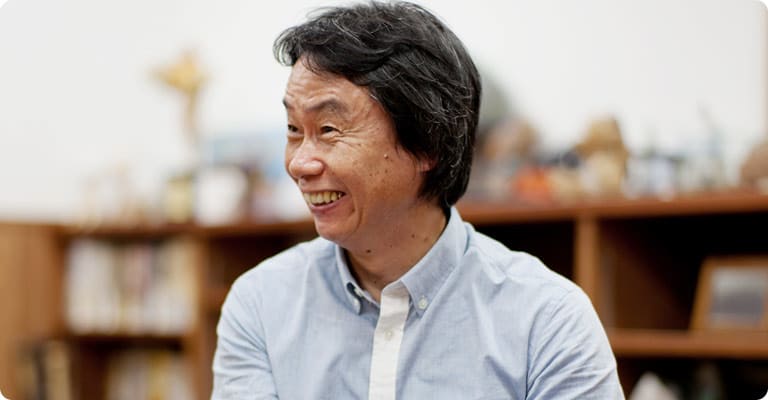Dreams are Forbidden
What are the projects that you stop usually like?
Hmm, good question. A lot of times I stop a project because I think people are missing the point. In other words, when people get really enthused about something that's not at all what we were thinking of when we first started talking about the kinds of things we should do. When it seems like the plan will be successful, but it's really only because people are so excited about it then and there.
Oh.
For example, say you have a commercial. The staff had a lot of fun making that commercial, but that doesn't come across at all.
It's almost like an inside joke.
Oh, I could see that.
Yeah.
Similarly, I'll also stop something when there's no consensus on how to go about making it. People may be excited about it and think it sounds interesting, but you need to ask, "How are you planning to make that? Where are you going to start?"
That makes sense. It's not an easy thing.
They don't need to have a flawless insight into how it's going to work, but they do need to have some sort of idea about it. When you've got those plans without any idea of how it will turn out, that's always when people say things like, "But doesn't it sound fun? It's so full of dreams."
Oh, I see! (laughs)
That's when things get dangerous, when people start talking right away about dreams or how much fun it will be.
I've also put a moratorium of dreams. I'm always saying that the smallest dreams are the best.
I have a moratorium on dreams, too. And when it comes to something being fun, you need to know what makes it fun. You can't just say, "It's fun."
Exactly.
I'm really getting a kick out of the two of you talking about a moratorium on dreams. (laughs)
(laughs)
The moratorium on dreams is a long standing one, you know.
You don't like dreams?
No.
Dreams are absolutely forbidden.
(laughs)
I remember the first time I met Kankuro Kudo-san5 I said, "I really like how your dreams are so small," and he knew just what I meant by that. 5. Kankuro Kudo: Playwright, actor, lyricist, composer, broadcast writer, movie director, producer, musician and guitarist from Japan.
It was a compliment.
That's right, it's a compliment.
Right. In other words, he has a vision of his ideal—his dream if you will—and each one is a separate entity.
He has his feet firmly on the ground.
That's true. Each of his dreams is very specific, and very possible.
He has an idea of exactly what he wants to make, and he sets out to make each of his ideas a reality, one by one.
To put it another way, you hate when something has no connection to the way things currently stand.
If your dream has no basis in reality, it means that you're not serious about making it happen.
Right. It doesn't matter what other people say, but at the very least it needs to have a basis in reality for you.
Right, right.
The worst is when someone tries to do a presentation on something that doesn't even have a basis in reality to them, and they try to gloss over that. They always say "or something" where they're supposed to be giving a detailed explanation. And I want to say, "What exactly is including in that something?"
(laughs)
What do you mean "something"? (laughs)
Exactly. They seem to think all they need is that "or something," but I've got no way of knowing what that "something" is.
Yeah. (laughs)
So I always tell people to leave the "or something" out of their presentations. And then it turns out that what they actually know isn't much at all. Then it's like, "That's all?" Then they realize that they need to know more about it.
I tell them, "There needs to be a connection." People used to put a box of cigarettes in a photo when they were trying to show the exact size of the objects in the photo, right? I really like having that box of cigarettes there; it becomes my connection to the objects in the photo. When you have plans where you can only talk about dreams, people haven't taken the time to put that cigarette box in.
The box of cigarettes becomes more than just a point of reference for the size of objects. It also gives the objects in the photo a connection to reality, thereby making them real for the viewer.
Right.
